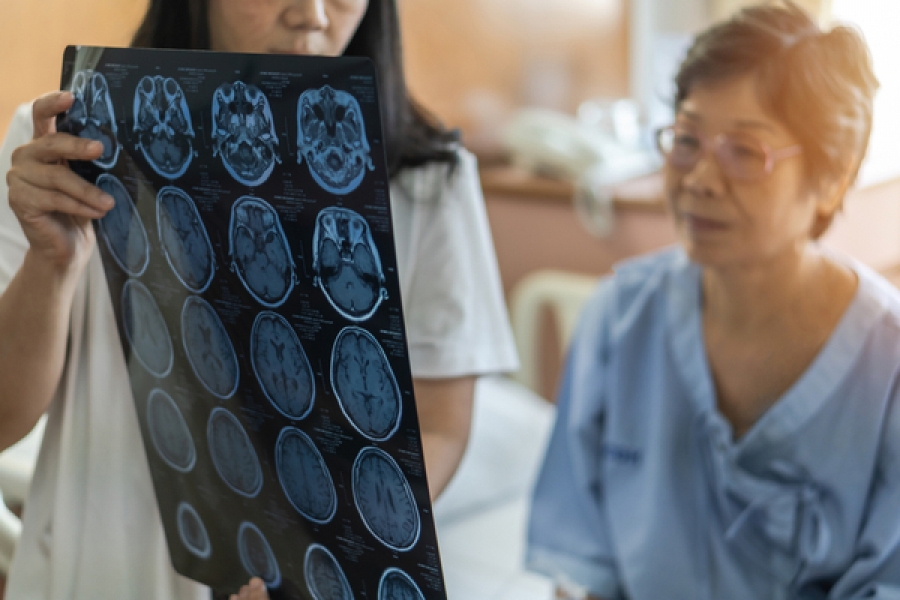Concussions can cause major brain damage. And if not treated correctly, that damage can lead to lasting changes in the way your brain functions. According to the CDC, the amount of concussions in athletes has doubled in the last 10 years. And the American Academy of Pediatrics found that concussions in 14-19-year-olds increased by a staggering 200%. Clearly, concussions are becoming more and more commonplace, which makes effective treatments more important than ever before. If you’re interested in a drug-free treatment of concussion, neurofeedback can help.
But before we dive into the nitty-gritty of this cutting-edge treatment option, let’s learn more about what happens to your brain when an injury such as a concussion occurs.
What is a concussion?
A concussion is an injury to the brain caused by impact to the head. When a concussion occurs, nerves and blood vessels are stretched and bruised, which can result in chemical changes inside of your brain. Although a single concussion won’t necessarily result in permanent brain damage, concussions are considered mild traumatic brain injuries. Symptoms of a concussion can vary greatly depending on the severity of the impact.
Most concussions are caused by sports-related injuries, falls, or motor vehicle accidents.
What happens to your brain when a concussion occurs?
The brain itself is composed of soft and squishy tissue. That tissue is surrounded by cerebrospinal fluid, which is meant to act as a cushion between the brain and the skull. However, a concussion occurs when your brain matter collides with the skull. As this happens, brain cells are damaged and chemical changes occur within the tissues.
These changes can cause your brain to stop functioning the way it normally would, which ultimately results in the symptoms associated with concussions. When a concussion occurs, an individual’s brain waves change. Often, they get stuck in a repetitive pattern, which impacts their ability to think and process. The good news is, brains—even after injury—are capable of learning how to self-regulate and improve their function.
Symptoms of a concussion:
The symptoms of a concussion are very similar to those of a traumatic brain injury. These symptoms include:
- Headache (this is the most common symptom)
- Confusion
- Nausea or vomiting
- Sensitivity to light and/or sound
- Dizziness
- Difficulty balancing
- Blurred vision
- Changes in sleep patterns
- Feeling “off” or in a “fog”
- Difficulty concentrating
- Temporary loss of consciousness
- Feeling depressed
- Irritability, nervousness, and anxiety
- Memory loss
Drug-free treatment of concussions: neurofeedback
As a starting point, healthcare professionals will typically recommend rest if you’ve had a concussion. However, that’s not always enough to alleviate symptoms and change brainwave patterns. Enter neurofeedback, a type of brain training that’s used to teach self-regulation after dysfunction has occurred.
To effectively treat a brain injury such as a concussion, it’s incredibly important to understand just how the injury has impacted overall brain function. At Braincode Centers, we measure brainwaves with an EEG brain map, so that we can accurately identify the areas of the brain that have been damaged by the injury.
From there, a personalized neurofeedback treatment plan is developed that targets the source of the problem. Neurofeedback is a drug-free, non-invasive, and completely natural treatment option that works to better your brain in two ways. Firstly, neurofeedback is used to help alleviate symptoms. And then when symptoms have been reduced, neurofeedback is used to aid in the restoration of stamina, focus, and processing so that you can get back to your same—or even improved—level of performance after a concussion.
Learn more about neurofeedback for concussions
If you or someone you know has recently suffered from a concussion, contact us today at Braincode Centers. We will help create a natural, drug-free brain training program that helps you feel like yourself again.
Schedule your free consultation to get started on your path to recovery.

